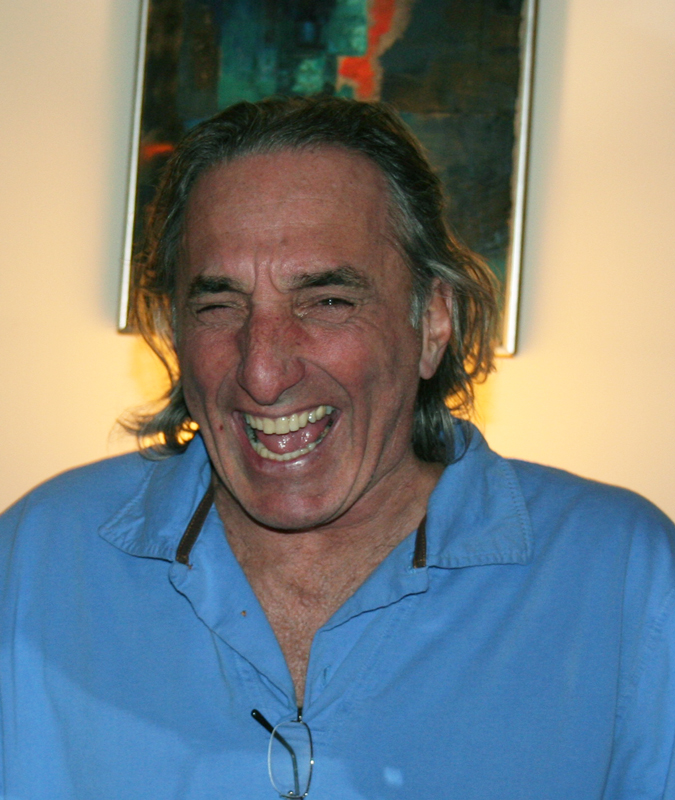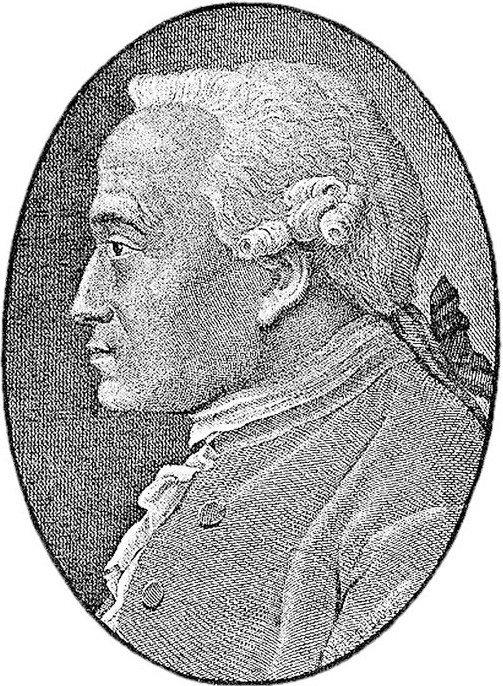|
Humour
Humour ( Commonwealth English) or humor (American English) is the tendency of experiences to provoke laughter and provide amusement. The term derives from the humoral medicine of the ancient Greeks, which taught that the balance of fluids in the human body, known as humours (Latin: ', "body fluid"), controlled human health and emotion. People of all ages and cultures respond to humour. Most people are able to experience humour—be amused, smile or laugh at something funny (such as a pun or joke)—and thus are considered to have a ''sense of humour''. The hypothetical person lacking a sense of humour would likely find the behaviour to be inexplicable, strange, or even irrational. Though ultimately decided by personal taste, the extent to which a person finds something humorous depends on a host of variables, including geographical location, culture, maturity, level of education, intelligence and context. For example, young children may favour slapstick such as Punch and ... [...More Info...] [...Related Items...] OR: [Wikipedia] [Google] [Baidu] |
Satire
Satire is a genre of the visual, literary, and performing arts, usually in the form of fiction and less frequently non-fiction, in which vices, follies, abuses, and shortcomings are held up to ridicule, often with the intent of shaming or exposing the perceived flaws of individuals, corporations, government, or society itself into improvement. Although satire is usually meant to be humorous, its greater purpose is often constructive social criticism, using wit to draw attention to both particular and wider issues in society. A feature of satire is strong irony or sarcasm —"in satire, irony is militant", according to literary critic Northrop Frye— but parody, burlesque, exaggeration, juxtaposition, comparison, analogy, and double entendre are all frequently used in satirical speech and writing. This "militant" irony or sarcasm often professes to approve of (or at least accept as natural) the very things the satirist wishes to question. Satire is found in many a ... [...More Info...] [...Related Items...] OR: [Wikipedia] [Google] [Baidu] |
Humorism
Humorism, the humoral theory, or humoralism, was a system of medicine detailing a supposed makeup and workings of the human body, adopted by Ancient Greek and Roman physicians and philosophers. Humorism began to fall out of favor in the 1850s with the advent of germ theory, which was able to show that many diseases previously thought to be humoral were in fact caused by microbes. Origin The concept of "humors" (chemical systems regulating human behaviour) became more prominent from the writing of medical theorist Alcmaeon of Croton (c. 540–500 BC). His list of humors was longer and included fundamental elements described by Empedocles, such as water, air, earth, fire, etc.. The concept of "humors" may have origins in Ancient Egyptian medicine, or Mesopotamia, though it was not systemized until ancient Greek thinkers. The word ''humor'' is a translation of Greek χυμός, ''chymos'' (literally juice or sap, metaphorically flavor). Ancient Indian Ayurveda medicine had dev ... [...More Info...] [...Related Items...] OR: [Wikipedia] [Google] [Baidu] |
Punch And Judy
Punch and Judy is a traditional puppet show featuring Mr. Punch and his wife Judy. The performance consists of a sequence of short scenes, each depicting an interaction between two characters, most typically Mr. Punch and one other character who usually falls victim to Punch's slapstick. ''The Daily Telegraph'' called Punch and Judy "a staple of the British seaside scene". The various episodes of Punch comedy—often provoking shocked laughter—are dominated by the clowning of Mr. Punch. The show is performed by a single puppeteer inside the booth, known since Victorian times as a "professor" or "punchman", and assisted sometimes by a "bottler" who corrals the audience outside the booth, introduces the performance, and collects the money ("the bottle"). The bottler might also play accompanying music or sound effects on a drum or guitar, and engage in back chat with the puppets, sometimes repeating lines that may have been difficult for the audience to understand. In Victoria ... [...More Info...] [...Related Items...] OR: [Wikipedia] [Google] [Baidu] |
Laughter
Laughter is a pleasant physical reaction and emotion consisting usually of rhythmical, often audible contractions of the diaphragm and other parts of the respiratory system. It is a response to certain external or internal stimuli. Laughter can rise from such activities as being tickled, or from humorous stories or thoughts. Most commonly, it is considered an auditory expression of a number of positive emotional states, such as joy, mirth, happiness, or relief. On some occasions, however, it may be caused by contrary emotional states such as embarrassment, surprise, or confusion such as nervous laughter or courtesy laugh. Age, gender, education, language, and culture are all indicators as to whether a person will experience laughter in a given situation. Some other species of primate (chimpanzees, gorillas and orangutans) show laughter-like vocalizations in response to physical contact such as wrestling, play chasing or tickling. Laughter is a part of human behavior regul ... [...More Info...] [...Related Items...] OR: [Wikipedia] [Google] [Baidu] |
Laugh
Laughter is a pleasant physical reaction and emotion consisting usually of rhythmical, often audible contractions of the diaphragm and other parts of the respiratory system. It is a response to certain external or internal stimuli. Laughter can rise from such activities as being tickled, or from humorous stories or thoughts. Most commonly, it is considered an auditory expression of a number of positive emotional states, such as joy, mirth, happiness, or relief. On some occasions, however, it may be caused by contrary emotional states such as embarrassment, surprise, or confusion such as nervous laughter or courtesy laugh. Age, gender, education, language, and culture are all indicators as to whether a person will experience laughter in a given situation. Some other species of primate ( chimpanzees, gorillas and orangutans) show laughter-like vocalizations in response to physical contact such as wrestling, play chasing or tickling. Laughter is a part of human behavior reg ... [...More Info...] [...Related Items...] OR: [Wikipedia] [Google] [Baidu] |
Taste (aesthetics)
In sociology, taste or palate is an individual or a demographic group's subjective preferences of dietary, design, cultural and/or aesthetic patterns. Taste manifests socially via distinctions in consumer choices such as delicacies/beverages, fashions, music, etiquettes, goods, styles of artwork, and other related cultural activities. The social inquiry of taste is about the arbitrary human ability to judge what is considered beautiful, good, proper and valuable. Social and cultural phenomena concerning taste are closely associated to social relations and dynamics between people. The concept of social taste is therefore rarely separated from its accompanying sociological concepts. An understanding of taste as something that is expressed in actions between people helps to perceive many social phenomena that would otherwise be inconceivable. Aesthetic preferences and attendance to various cultural events are associated with education and social origin. Different socioeconomic ... [...More Info...] [...Related Items...] OR: [Wikipedia] [Google] [Baidu] |
Amusement
Amusement is the state of experiencing humorous and entertaining events or situations while the person or animal actively maintains the experience, and is associated with enjoyment, happiness, laughter and pleasure. It is an emotion with positive valence and high physiological arousal. Amusement is considered an "epistemological" emotion because humor occurs when one experiences a cognitive shift from one knowledge structure about a target to another, such as hearing the punchline of a joke. The pleasant surprise that happens from learning this new information leads to a state of amusement which people often express through smiling, laughter or chuckling. Current studies have not yet reached consensus on the exact purpose of amusement, though theories have been advanced in the fields of psychology, psychiatry, and sociology. In addition, the precise mechanism that causes a given element (image, sound, behavior, etc.) to be perceived as more or less 'amusing' than another si ... [...More Info...] [...Related Items...] OR: [Wikipedia] [Google] [Baidu] |
Peter McGraw
Peter McGraw is an American professor of marketing and psychology at the University of Colorado Boulder. As a behavioral scientist his research spans the fields of judgment and decision making, emotion, affect, mood, and behavioral economics. McGraw's early work examined the interplay of judgment, emotion, and choice, with an emphasis on moral judgment, mixed emotions, and behavioral economics. More recently, McGraw has examined the antecedents and consequences of humor. With Caleb Warren, he has developed a theory of humor: the Benign Violation Theory. The theory suggests that humor occurs when a person simultaneously appraises a situation as wrong or threatening some way (i.e., a violation) and yet appraises the situation to be okay or acceptable in some way (i.e., benign). His TEDx talk, "What makes things funny?" documents early insights from the benign violation theory. In 2014, McGraw co-authored ''The Humor Code'', a book about the science of humor and his travels aroun ... [...More Info...] [...Related Items...] OR: [Wikipedia] [Google] [Baidu] |
This Book Needs No Title
''This Book Needs No Title: A Budget of Living Paradoxes'' is a 1980 collection of essays about logic, paradoxes, and philosophy, by Raymond Smullyan. It was first published by Prentice-Hall. Reception ''Kirkus Reviews'' called it "funny" and "provocative", commending Smullyan's descriptions of Zen and noting that the book could appeal to both children and adults, but conceded that Smullyan's work may be an "acquired taste".THIS BOOK NEEDS NO TITLE: A Budget of Living Paradoxes reviewed at ''Kirkus Reviews''; published May 7, 1980; retrieved May 27, 2018 ''The Washington Post'' has described "This Book Needs No Title" as "tantalizing", [...More Info...] [...Related Items...] OR: [Wikipedia] [Google] [Baidu] |
Nicholas Kuiper
Nicholas is a male given name and a surname. The Eastern Orthodox Church, the Roman Catholic Church, and the Anglican Churches celebrate Saint Nicholas every year on December 6, which is the name day for "Nicholas". In Greece, the name and its derivatives are especially popular in maritime regions, as St. Nicholas is considered the protector saint of seafarers. Origins The name is derived from the Greek name Νικόλαος (''Nikolaos''), understood to mean 'victory of the people', being a compound of νίκη ''nikē'' 'victory' and λαός ''laos'' 'people'.. An ancient paretymology of the latter is that originates from λᾶς ''las'' ( contracted form of λᾶας ''laas'') meaning 'stone' or 'rock', as in Greek mythology, Deucalion and Pyrrha recreated the people after they had vanished in a catastrophic deluge, by throwing stones behind their shoulders while they kept marching on. The name became popular through Saint Nicholas, Bishop of Myra in Lycia, the inspir ... [...More Info...] [...Related Items...] OR: [Wikipedia] [Google] [Baidu] |
Slapstick
Slapstick is a style of humor involving exaggerated physical activity that exceeds the boundaries of normal physical comedy. Slapstick may involve both intentional violence and violence by mishap, often resulting from inept use of props such as saws and ladders. The term arises from a device developed for use in the broad, physical comedy style known as '' commedia dell'arte'' in 16th-century Italy. The " slap stick" consists of two thin slats of wood, which make a "slap" when striking another actor, with little force needed to make a loud—and comical—sound. The physical slap stick remains a key component of the plot in the traditional and popular Punch and Judy puppet show. Other examples of slapstick humor include '' The Naked Gun'' and Mr. Bean. Origins The name "slapstick" originates from the Italian ''Batacchio'' or ''Bataccio'' – called the " slap stick" in English – a club-like object composed of two wooden slats used in '' commedia dell'arte''. When struck ... [...More Info...] [...Related Items...] OR: [Wikipedia] [Google] [Baidu] |
Cambridge University Press
Cambridge University Press is the university press of the University of Cambridge. Granted letters patent by King Henry VIII in 1534, it is the oldest university press in the world. It is also the King's Printer. Cambridge University Press is a department of the University of Cambridge and is both an academic and educational publisher. It became part of Cambridge University Press & Assessment, following a merger with Cambridge Assessment in 2021. With a global sales presence, publishing hubs, and offices in more than 40 countries, it publishes over 50,000 titles by authors from over 100 countries. Its publishing includes more than 380 academic journals, monographs, reference works, school and university textbooks, and English language teaching and learning publications. It also publishes Bibles, runs a bookshop in Cambridge, sells through Amazon, and has a conference venues business in Cambridge at the Pitt Building and the Sir Geoffrey Cass Sports and Social Centre. ... [...More Info...] [...Related Items...] OR: [Wikipedia] [Google] [Baidu] |





_03.jpg)
